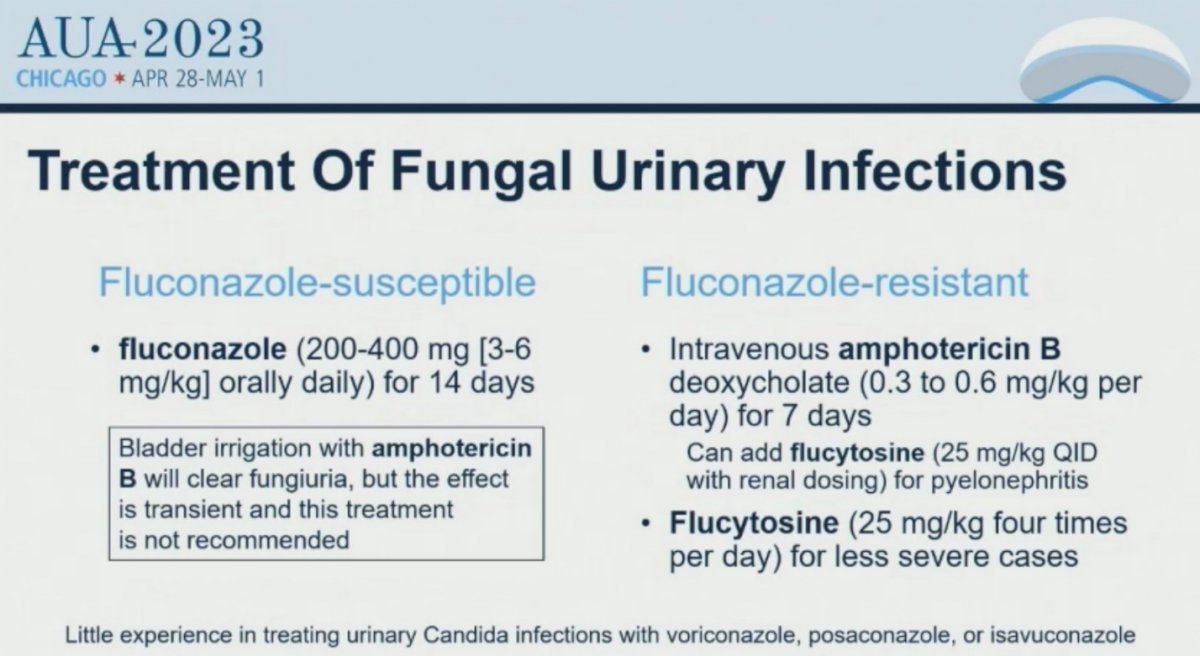(UroToday.com) Dr. A. Lenore Ackerman gave a presentation on the update on the treatment of fungal urinary tract infections. She began by explaining the human microbiome, which comprises a variety of microorganisms such as bacteria, viruses, archaea, and parasites that form a commensal microbial community.

Fungi play a significant role in human diseases, as viable fungi have been discovered in urine since the 1850s and the composition of urine fungi has been shown to change in patients with renal diseases and diabetes.
Most patients with candiduria confirmed by culture are asymptomatic; only two percent of hospitalized patients with candiduria experience urinary symptoms. It is critical to distinguish between candidemia and candiduria. Only a small percentage of immunocompromised patients with candiduria will develop candidemia; however, 10% of those with candidemia will have synchronous candiduria. Therefore, it is crucial to differentiate between colonization and infection.
The algorithm for urinary fungal infection is depicted here. The first step is the differentiation between candida and atypical fungus.

When candiduria is isolated, it may be challenging to distinguish between colonization and bladder infection and treating it medically may be difficult. In such situations, the resolution of risk factors should be the primary objective of care.

Clinicians should be aware of risk factors and strive to correct underlying conditions, relieve obstructions, or replace indwelling catheters.
The first step in treating candida fungal urinary infections is to differentiate between Fluconazole-susceptible and Fluconazole-resistant infections.

Dr. Ackerman concluded her presentation by emphasizing the importance of understanding that fungi are part of the urinary microbiome, even in healthy asymptomatic individuals, and that funguria may be more of a marker of host health than a sign of infection.
Presented by: A. Lenore Ackerman, MD PhD, University of California, Los Angeles.
Written by: Seyed Hossein Hosseini Sharifi, MD, Department of Urology, University of California Irvine, @Sharifi_shh on Twitter during the 2023 American Urological Association (AUA) Annual Meeting, Chicago, IL, April 27 – May 1, 2023


